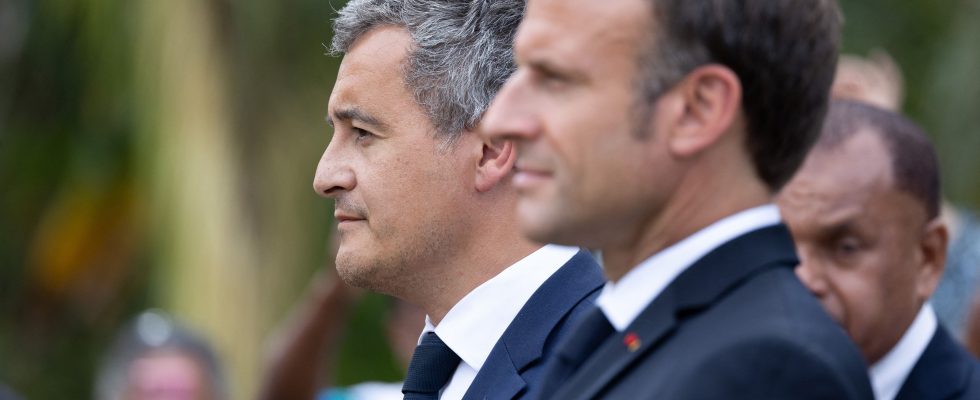This simple detail made the French delegation raise eyebrows. This May 27, Emmanuel Macron gives a major speech in Dresden on the occasion of a state visit across the Rhine. Place du Neumarkt, the head of state delivers an indictment against the extreme right and the “fascination with authoritarian regimes”. In the crowd, a blue, red and green flag flies. That of the Kanak and Socialist National Liberation Front (FLNKS), the Caledonian independence movement. What is this emblem doing more than 15,000 kilometers from the archipelago? Who is brandishing it, in the middle of a crisis? The executive wonders. It detects the hand of a foreign power. Two months earlier, the French services had spotted the presence of an agent from the Azerbaijani services alongside members of the FLNKS, during a meeting of the Special Committee on Decolonization of the United Nations, in Caracas (Venezuela).
France did not wait for the explosion of the Caledonian crisis to identify foreign interference on the island. In addition to the Baku regime, we are watching for weak signals coming from Russia or China. But the Elysée is passing on the instructions: please do not raise the subject publicly. “Firm speech on Azerbaijan, but no publicity,” slips a member of the government. “It would give the impression of playing politics. It should not be used as an argument,” adds a leading minister. And give the feeling that the very existence of interference casts shame on local demands. So, when Interior Minister Gérald Darmanin accused Azerbaijan of interference on May 16, some people frowned. “Me, I am disciplined,” says a colleague invested in these subjects.
Commissions of inquiry
Keep the scourge of foreign interference away from the media tumult. Confine it to diplomacy, far from political debate. Wishful thinking, as the subject permeates public debate. The Macronleaks, hacking of the emails of the En marche! in 2017 suspected of having been orchestrated in Russia, ruined the end of Emmanuel Macron’s presidential campaign.
Parliament takes up the subject. In February 2024, socialist senators launched a commission of inquiry into foreign interference. During his hearing, Gérald Darmanin listed on May 28 some recent attempts at destabilization, such as these red hand tags affixed to the Shoah memorial or these blue Stars of David discovered at the end of October 2023 on several walls in the capital, works of Bulgarian and Moldovan citizens.
The RN in the background
In the Assembly, the National Rally took the lead. He launched his own commission of inquiry in 2022 to clear himself of accusations of connections with Putin’s Russia. Alas, by assuming the presidency of the body, the far-right party left it to the Renaissance deputy Constance Le Grip, rapporteur, to write a vitriolic report against the RN. Frontist denials change nothing. The shadow of the RN hangs over every French attempt to fight against foreign interference. Renaissance MP Sacha Houlié introduced a bill in the spring (PPL) aimed at “preventing” this phenomenon. The text requires representatives of foreign interests who lobby in France to register on a public national register and provides for the possibility of freezing the financial assets of people or entities engaging in interference activities.
Another innovation: the expansion of an algorithmic surveillance system, currently limited to the fight against terrorism. The majority was delighted that the examination of the text would impact the European campaign and weaken the RN. Marine Le Pen herself asked the President of the National Assembly Yaël Braun-Pivet in February to refer the matter to the Council of State so that it could issue an opinion on the text. And thus delay its examination in Parliament. The latter did not follow up. But the adoption of the law flew under the radar. “The media space is saturated by other things, notes a Renaissance executive. And this subject of interference slips on the feathers of RN voters.” As if the party’s sovereignism served as a bulwark against any suspicion of dependence on foreign countries.
.
